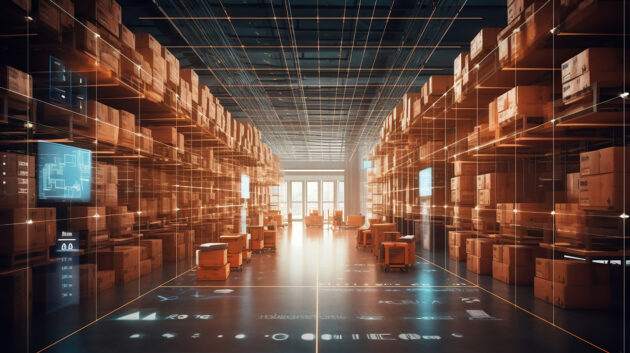
How is Deloitte’s Canadian smart factory and warehouse redefining the future?
by Emily Newton, Editor-in-Chief, Revolutionized

Deloitte unveiled the new facility on January 23, dubbing it “The Smart Factory @ Montreal.”

Adobe stock by Malika.
Manufacturers have examined the idea of a smart factory for years, but real-world smart factories and warehouses are still rare. That could be changing now that Deloitte has opened its Canadian smart factory.
Deloitte unveiled the new facility on January 23, 2023, dubbing it “The Smart Factory @ Montreal.” As the proof of concept grows and generates more real-world insights into this technology and how it works in practice, it could redefine the future of manufacturing.
Fully automated production
One of the Canadian smart factory’s most striking features is its fully automated production lines. Robots handle everything from retrieving parts from the warehouse to assembling them to preparing final products for shipment. Manual work is only necessary for maintenance and management.
Automation is already a staple in manufacturing, but usually only in a few processes within the workflow. Some may fear that fully automated production lines may displace humans, but many manufacturers struggle to find workers today. Consequently, automation is less about replacing humans and more about filling roles they no longer want.
As industries grow, manufacturing demand will rise, but the population won’t increase at the same rate. Workers also have more job choice freedom than ever before, so fewer will accept monotonous factory roles. Amid that shift, fully automated production like that in Deloitte’s smart factory and warehouse will become the norm.
Discover more about the Internet of Everything
The smart factory and warehouse also introduce a new step in connectivity. A dedicated 5G network lets Deloitte move from the Internet of Things (IoT) to the Internet of Everything (IoE), where everything across the facility is part of a cohesive, interconnected whole.
This IoE setup enables flexible automation. Whereas robots typically struggle to adapt to new scenarios, that’s not an issue when they all communicate with each other in real-time to inform quick, effective adjustments. That adaptability makes large-scale automation more feasible amid the growing shift toward supply chain flexibility and resilience.
Widespread interconnectivity helps human workers, too. Supply chains are becoming increasingly global, but this can be challenging as many countries have collective labour agreements and unique tax considerations. The smart factory’s IoE setup includes safety monitoring, operational data and operational digital twins, providing real-time, accessible data on workforce concerns to make compliance easier.
The IoE also extends into building systems like lighting, cooling and ventilation. Real-time data, flexible automation and remote access in these areas let the facility take more control over its energy consumption and sustainability. As environmental regulations rise with Paris Agreement goals quickly approaching, that will become a crucial advantage.
Smart factories and warehouses are the future of manufacturing
Today, the Canadian smart factory and warehouse showcases how widespread tech adoption can help manufacturers surge past the competition. As these benefits become more well-known — especially in a real-world environment — this level of digital transformation will become the norm. In that way, the smart factory is a glimpse into the future of the industry.
It will likely take time before smart tech adoption of this level is standard across the sector. Despite its many advantages, it’s an expensive process, and it raises cybersecurity concerns. As more real-world examples arise, though, manufacturers will learn to navigate these challenges and embrace the factory of tomorrow.
Emily Newton is an industrial journalist. She has over five years experience covering the industry as the Editor-in-Chief of Revolutionized.